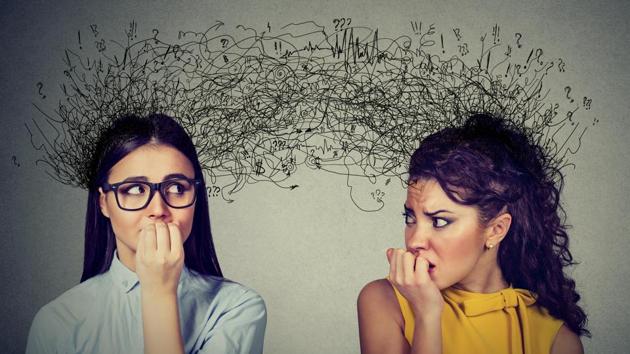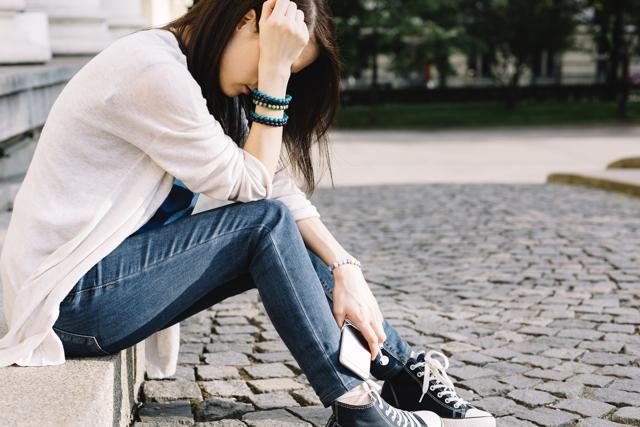Quit playing games with your mind
Do not let stress, anxiety or depression run havoc in your life. Look out for the signs and deal with the issues in an appropriate and timely manner.
A few days back, Hollywood actor Ryan Reynolds opened up about his struggle with anxiety. He also shared that he used humour as a diversion tactic. His revelation has brought the issue back into the spotlight, nudging many to make a renewed attempt at understanding it.

Experts agree that it is only since a few years that mental health is being taken seriously. Part of the credit goes to celebrities such as Emma Stone (experienced anxiety) and Deepika Padukone (battled depression), who frankly spoke about their problems.
However, with the understanding of mental health, even today, at a relatively nascent stage, the difference between stress, anxiety and depression is usually unclear to many. According to Dr Alpes Panchal, psychiatrist and founder, The Freemind Initiative, the common confusion arises between anxiety and depression as those with anxiety often battle depression and vice versa.
However, a simple lookout for telltale signs can help identify if a person is fighting just one or more mental health battles.

The right label
Stress: It is situation specific and usually subsides with a lifestyle change or when the situation passes by. It is the overwhelming feeling of being unable to handle a particular problem. A common example is stress to meet a work deadline.
Anxiety: It makes people obsessive or worry about a particular thing. An anxious person is prone to panic attack, which is marked by increased breathing, heaviness of chest and a feeling of impending doom. They tend to suffer from insomnia, a reduced appetite, diminished ability to concentrate and recall things.
Depression: Depressed people express feelings of helplessness, hopelessness and worthlessness. Along with passive death wishes or active suicidal ideation, they have an extreme loss of motivation.
An easy way to differentiate between the three issues is with the help of tenses — past, present and future. “Stress is caused most of the time by current or present events, which are overwhelming to handle. Depression is caused by past events or other traumatic situations. Anxiety, most of the time, is caused by future catastrophic thinking where the person worries about some impending doom,” explains Neeta V Shetty, psychotherapist and founder, Blissful Mind Therapy Centre.
The misunderstanding is so deep-rooted, that patients are taken to wrong specialists. “Anxiety symptoms are often confused with cardiac issues or asthma-related problems because palpitation, breathlessness and heaviness in the chest is experienced by anxious people too. So, most of the time the patients tend to land up in emergency rooms of the hospitals or seek help of cardiologists or asthma specialists. It is one of the most common type of patients that cardiologists see globally,” says Shetty.

Prevent the downward spiral
The graph usually begins with stress, leading to anxiety and then full-blown depression. While stress is good in a way that it raises the adrenaline levels in humans to make them productive, anxiety is the stage where one must listen to warning signals. And anxiety can be kept at bay with a few simple tweaks in lifestyle.
“Exercise and meditate regularly. Just invest ten minutes to half an hour of your daily life. While exercise releases natural endorphins that help reduce stress, meditation helps in coping with stress. Don’t let work spill over at home and vice versa. Don’t get involved in anxiety provoking situations such as cheating, gambling, etc. Stop using substances such as alcohol, tobacco, cannabis and other drugs, especially if you’re genetically prone to mental health disorders,” suggests Panchal.
Being supportive
If any loved one is suffering from anxiety, it’s important not to take their fears lightly or disregard them as imaginations. Try to attend a few sessions of therapy with them. At times, lending a listening ear goes a long way in making them feel better. Don’t hesitate to reach out but if they get irritable, give them time to open up. It’s also important to remember that giving advice such as “don’t think about your problem so much” will be futile. It’s better to distract one through sports or hobbies.
First aid kit for the anxious
The purpose of a personal anxiety kit is to help a person cope with panic and anxiety attacks by making them use all of their five sensory organs. City-based psychotherapist Neeta V Shetty gives a rough guide:
Ear: Relaxation talks or music downloaded in a quick access folder in one’s cell phone
Eye: Guided visualisation talks or videos to watch that can make you forget your worry
Tongue: Dark chocolate or something which you especially like to eat
Skin: A soft toy, silk or satin, the touch of which calms you
Nose: Aromatherapy blends or essential oils to smell.
With inputs from Tanvi Sardesai, psychologist, SL Raheja Fortis Hospital and Namrata Dagia, clinical psychologist, The Illuminating Zone.
Follow @htlifeandstyle for more
The author tweets @iamsusanjose
Catch your daily dose of Fashion, Taylor Swift, Health, Festivals, Travel, Relationship, Recipe and all the other Latest Lifestyle News on Hindustan Times Website and APPs.
Catch your daily dose of Fashion, Taylor Swift, Health, Festivals, Travel, Relationship, Recipe and all the other Latest Lifestyle News on Hindustan Times Website and APPs.






